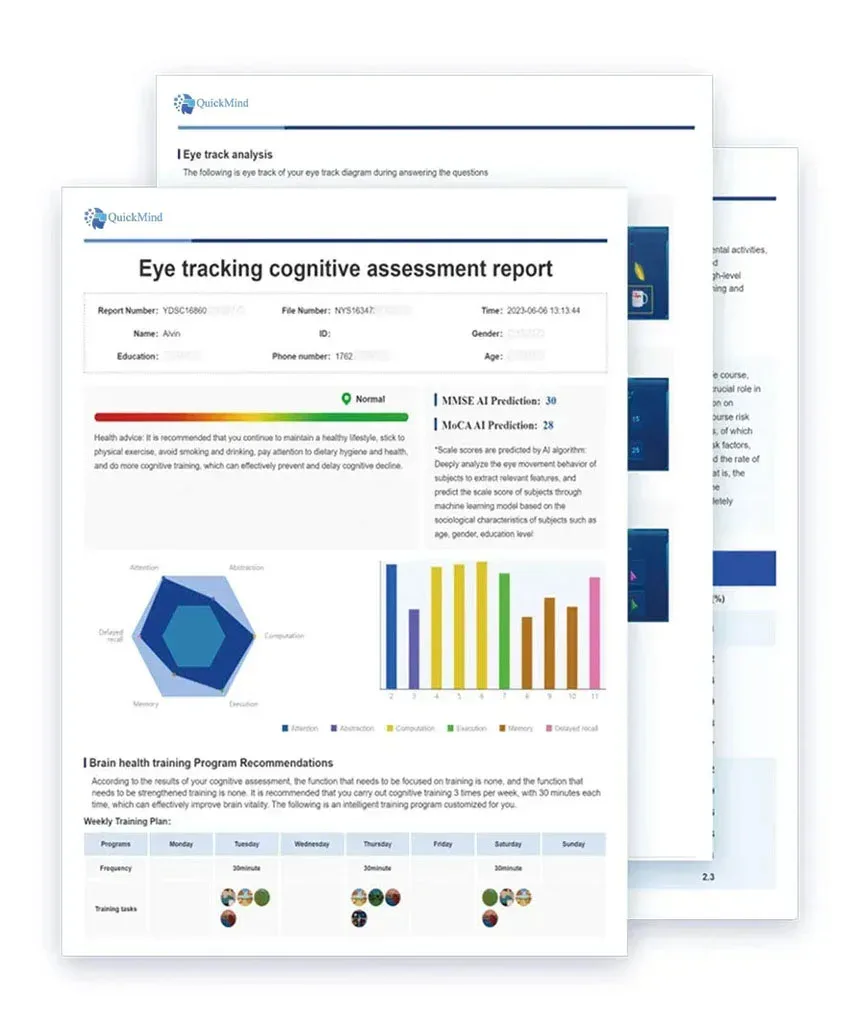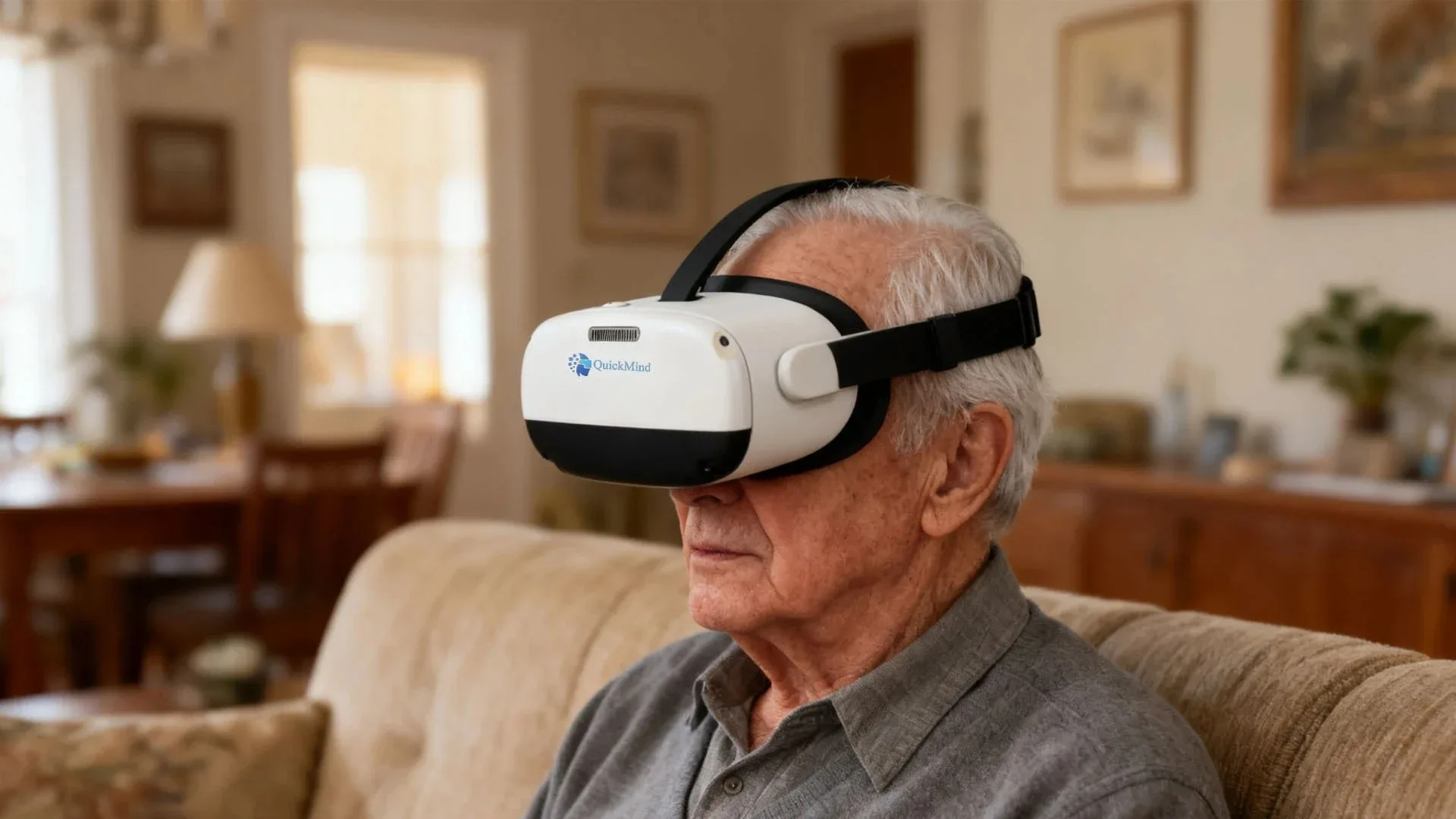
Progressive investigations proposes that augmented reality platforms program can considerably upgrade the experiences of persons managing cognitive impairments. By transporting them to comforting surroundings, VR offers a distinctive possibility for cognitive stimulation, affective stabilization, and interpersonal communication. Diverse examinations have established that VR therapy can lessen anxiety states, apprehension, and despair in dementia sufferers while also enhancing their mindfulness, awareness, and expressive competencies.
- VR allows patients with dementia to recall cherished memories through responsive representations.
- Likewise, it can deliver a safe and assisting space for community involvement, fostering a sense of relationship and acceptance.
- Researchers hold that VR therapy has the chance to innovate dementia treatment by offering new and state-of-the-art avenues to manage the multifaceted barriers faced by users living with this syndrome.
Advanced Digital Care for Cognitive Support in Alzheimer's
Expanding digital therapeutics are demonstrating potential in the sector of neural stimulation for individuals experiencing the Alzheimer's condition. These platforms exploit software solutions to strengthen brain processing and possibly mitigate the progression of the illness. Playful exercises, personalized coaching, and thought training are some instances of procedures being explored in this flourishing area. While examinations are ongoing, digital therapeutics offer a supportive means for upgrading the experiences of those diagnosed with Alzheimer syndrome.Digital Terrain Exploration in Alzheimer's Disease Management
Touching participants dealing with neurodegenerative Alzheimer's type, the ongoing waning of mind function and intellectual capacities can greatly influence their capacity to engage with the community. This crippling condition often generates in seclusion, disorientation, and a decreased self-recognition. Modern advancements in virtual reality technology deliver a groundbreaking avenue to combat these challenges by generating immersive environments that can encourage the brain and restore cognitive function.
Digital immersive sceneries designed specifically for Alzheimer's sufferers can move them in nostalgic spots, such as their childhood home or a admired outdoor area, eliciting positive memories and mitigating anxiety. Through interactive endeavors, these virtual settings can also promote cognitive abilities like recollection, concentration, and critical thinking.
The likely improvements of virtual reality in Alzheimer's support are considerable. Early analyses have shown positive results, with persons demonstrating improvements in cognitive ability, mood, and overall quality of life. As this development proceeds, it holds the key to reshaping the way we approach Alzheimer's disease, making available a new pathway for help and enabling.
Computer-Aided Reminiscence for Alzheimer's Victims
Reminiscence therapy is a widely recognized technique used to increase cognitive function and affective health in individuals with Alzheimer's disease. This time-honored form of therapy involves engaging patients to retrieve past experiences, often through talks. However, a groundbreaking approach is emerging: VR-mediated reminiscence therapy.
This immersive tool utilizes virtual reality headsets to relocate patients in realistic environments that arouse memories from their past. By immersing in these artificial surroundings, individuals with Alzheimer's can associate with their past in a powerful way.
The Role of VR in Enhancing Dementia Patient Recall and Cognition
Virtual reality (VR) is emerging as a up-and-coming tool in the fight against dementia, presenting innovative ways to improve memory and cognition. By constructing immersive experiences, VR can enable individuals with dementia revisit memories, join in meaningful activities, and enhance cognitive powers. Studies have confirmed that VR interventions can generate substantial improvements in memory recall, attention, and positional awareness. Moreover, VR provides a risk-free and motivating space for individuals with dementia to share, reducing feelings of isolation and concern.
- Also, VR can be tailored to individual needs and preferences, enabling expanded levels of communication.
- Regardless of the chances of VR, progressive research is needed to fully understand its long-term results in dementia care.
Renewing Memories, Enhancing Relationships: VR for Alzheimer's Social Health
Simulated digital experiences is emerging as a revolutionary tool in the sphere of brain degenerative illnesses. By crafting interactive and communicative atmospheres, VR has the possibility to stimulate memories, build social interaction, and augment the overall quality of life for participants managing Alzheimer's. Considered one of the powerful aspects of VR is its ability to shift users to nostalgic scenes and experiences from their past. Whether it's a exploration of a childhood home or a illustration of a beloved holiday, these virtual walkthroughs can evoke happy memories and solidify cognitive performance. Furthermore, VR can promote social interaction by associating individuals with others who share similar preferences. This can be particularly constructive for people with Alzheimer's who may grapple with traditional social involvement. By establishing a safe and inviting virtual space, VR can soothe feelings of isolation and loneliness, which are common among patients struggling with Alzheimer's. Overall, VR holds immense likelihood for transforming the lives of subjects with Alzheimer's by rekindling memories, repairing connections, and advancing their quality of life. As technology advances to expand, we can expect even more imaginative applications of VR Cognitive function assessment in the field of dementia care.Utilizing Cognitive Training: Employing VR Tools for Alzheimer's Care
VR technology is rapidly emerging as a transformative tool in the realm of cognitive training, particularly for users managing Alzheimer's disease. By immersing patients in interactive and engaging virtual environments, VR-based interventions can enhance cognitive functions such as memory, attention, and problem-solving. These games often incorporate elements of storytelling, exploration, and social interaction, making the training process significantly appealing. Studies have shown that VR-based cognitive training can lead to important improvements in cognitive performance, hypothetically delaying the progression of Alzheimer's symptoms. Moreover, VR provides a safe and controlled environment for patients to practice new skills and cultivate their confidence.
- Game elements in VR training can make it exceptionally compelling and amusing for subjects with intellectual impairments.
- VR simulations can offer authentic scenarios that promote and boost cognitive functions.
- Personalized VR experiences can cater to distinct expectations and habits.
Virtual Reality as a Renewed Opportunity for Dementia Patients
Enveloping artificial domains offer a novel and encouraging avenue for persons suffering dementia. These mechanisms can generate familiar environments, allowing those affected by cognitive decline to recapture cherished memories and foster a sense of well-being. By tackling the effects of dementia, VR realities have the possibility to upgrade quality of life for both participants and their aides.
- Trials indicate that VR techniques can considerably impact cognitive function, behavioral well-being, and even kinetic abilities in individuals with dementia.
- Moreover, VR affords a safe and managed environment for interaction, reducing the risk of injury.
- In addition, VR can encourage social relationships by allowing individuals with dementia to interact in virtual activities with others.
Virtual Reality for Prompt Alzheimer's Screening and Intervention
Alzheimer's dementia poses a complex difficulty, often remaining in its early stages. Nonetheless, virtual reality (VR) is gaining traction as a trailblazing tool for precocious diagnosis. Through immersive digital replications, VR can evaluate cognitive capacity in ways that traditional methods are insufficient to. This capability allows for speedy involvement strategies, potentially slowing disease progression and boosting the quality of life for people with Alzheimer's.
- VR-based assessments can test memory, attention, and spatial awareness in a safe and controlled setting.
- Specialized virtual sessions support personalized cognitive engagement for users.
- Immersive VR scenes foster connection and communication for Alzheimer's individuals.
Closing the Divide: VR for Communicative and Interactive Dementia Support
{In the realm of dementia care, innovative technologies are emerging to upgrade the lives of participants managing dementia. Virtual reality (VR) is one such mechanism that holds immense possibility for enhancing social engagement and communication in dementia care. By providing enthralling virtual settings, VR can engage cognitive function, reduce behavioral issues, and ultimately improve the overall well-being of dementia patients.
VR experiences personalized for cognitive decline support can range from reminiscence therapy sessions that transport participants to cherished memories, to interactive games that promote social interaction and cognitive training. Furthermore, VR has the capability to connect participants in dementia care with associates, regardless of physical separation, fostering a sense of togetherness.
- VR can aid in reducing agitation and anxiety by providing a calming and distracting environment.
- Investigations have shown that VR interventions can lead to improvements in cognitive function, mood, and social interaction in dementia patients.
- As technology grows in evolve, we can expect even more innovative and {effective|beneficial|helpful|powerful|impactful|successful|productive|efficient
